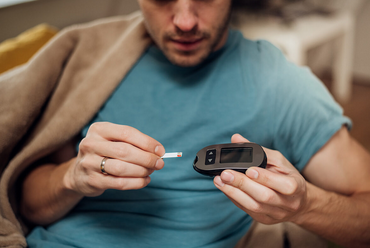Myths About Type 1 Diabetes You Shouldn’t Believe

Type 1 diabetes is a chronic autoimmune condition that affects how your body produces insulin. It is often misunderstood, and there are many myths surrounding it. This blog post will debunk some of the most common myths about type 1 diabetes.
Myth 1: Type 1 Diabetes is Caused by Overeating Sugar
One of the most persistent myths about type 1 diabetes is that it is caused by overeating sugar. However, this is different. Type 1 diabetes is an autoimmune condition in which the body’s immune system mistakenly attacks and destroys the insulin-producing cells in the pancreas. It is not caused by lifestyle factors such as diet or exercise.
Myth 2: People with Type 1 Diabetes Can’t Eat Sugar
Another common misconception is that people with type 1 diabetes cannot eat sugar at all. While it is true that people with type 1 diabetes need to be mindful of their carbohydrate intake, they can still enjoy sugary treats in moderation. The key is monitoring blood sugar levels and adjusting insulin doses carefully.
Myth 3: Type 1 Diabetes is Caused by Poor Parenting
There is no scientific evidence to support the claim that type 1 diabetes is caused by poor parenting. Type 1 diabetes is a genetic condition that is not related to parental behavior or lifestyle.
Myth 4: Type 1 Diabetes is a Death Sentence
While type 1 diabetes is a severe condition, it is not a death sentence. With proper management, people with type 1 diabetes can live long and healthy lives. Advances in medical technology have made it possible for people with type 1 diabetes to manage their condition more effectively than ever before.
Myth 5: Type 1 Diabetes is a Mental Illness
Type 1 diabetes is not a mental illness. It is a physical condition that affects how the body produces insulin. There is no link between type 1 diabetes and mental health problems.
Myth 6: People with Type 1 Diabetes Can’t Play Sports
People with type 1 diabetes can participate in all physical activities, including sports. Monitoring blood sugar levels before, during, and after exercise is important to prevent hypoglycemia (low blood sugar).
Myth 7: Type 1 Diabetes is a Choice
Type 1 diabetes is not a choice. It is a chronic autoimmune condition that cannot be prevented or cured.
Myth 8: Type 1 Diabetes is Caused by Stress
While stress can exacerbate the symptoms of type 1 diabetes, it is not the cause of the condition. Type 1 diabetes is a genetic condition that is not related to stress levels.
Myth 9: People with Type 1 Diabetes Can’t Have Children
People with type 1 diabetes can have healthy pregnancies and babies. It is essential to work closely with a healthcare provider during pregnancy to manage blood sugar levels and ensure the health of both mother and baby.
Myth 10: Type 1 Diabetes is a Rare Condition
Type 1 diabetes is not a rare condition. It affects millions of people worldwide, including many children and adolescents.
Myth 11: People with Type 1 Diabetes Can’t Live Normal Lives
People with type 1 diabetes can live entire and active lives. Proper management allows them to enjoy the same activities and experiences as anyone else.
Myth 12: Type 1 Diabetes is Contagious
Type 1 diabetes is not contagious. Bacteria or viruses do not cause it and cannot be spread from person to person.
Final Thoughts
It is essential to be aware of these myths about type 1 diabetes and to seek accurate information from reliable sources. By understanding the facts about type 1 diabetes, you can help reduce stigma and discrimination against people with the condition.